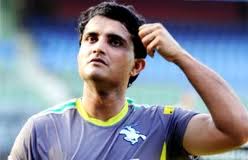
So what if Sourav Ganguly decides to play in IPL 6? He will still be a 'youth' when IPL begins next season. At 40, Ganguly still feels there's enough cricket left in him, and the failure as the Pune Warriors captain was just another bad phase.
"I'm also a human and prone to failures," is how he reacts to the poor IPL 5 outing. So, when most of his fellow mates have decided to take over as mentors, Ganguly is still in two minds. To play or not to play, is the question!
In a press conference last May, Rahul Dravid had in a way made it clear that once Rajasthan Royals find an alternative, he would happily focus on his job as a mentor.
"l will take a few months' break now and then decide after consultations with the team management what my role will be. My goal is to try and develop young players," Dravid had said.
Just a year younger to Ganguly, Dravid may just be seen donning the mentor's hat next season. It won't be a surprise. The Wall has time and again admitted that he has no problem in acting as the mentor.
Anil Kumble has already taken over as a mentor for Royal Challengers Bangalore, VVS Laxman has decided to give the million-dollar league a miss, perhaps realizing that its time to leave the baton to the fresh legs.
But for the Prince of Calcutta, 'age is just a number'. For a man, whose first love has been cricket; it's difficult to completely switch off from it. And, perhaps, that's why he always talks positive, when it comes to his game.
The kind of humiliation and toil the gentleman has gone through, any man would have made up his mind to call it a day, but Ganguly is different. "I will take a call next season. As a matter of fact, I would not be even 41 when the IPL 6 would begin in 2013," he says.
Still having a year's contract left with the Pune Warriors, the former India captain is still unsure about his next step in the world of IPL.
But, the gentleman, who turned 40 on Sunday, would in all probabilities want to leave IPL on a high. So, next year even if you see him back in action, don't get surprised, because for Dada, "life is simple" and age is just a number!





Comments
Add new comment